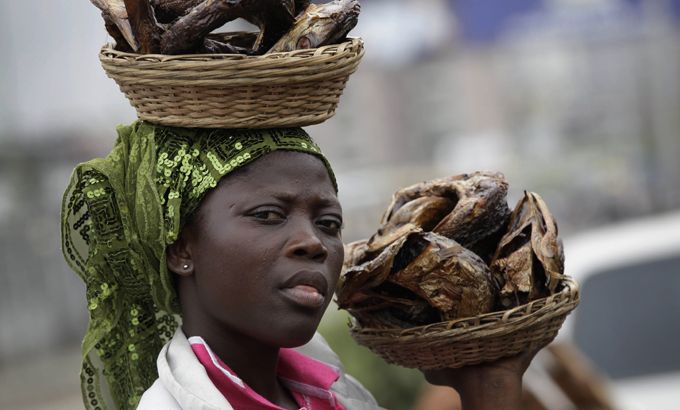
Nigeria: On the brink of a food crisis?
Still reeling from the recent massive floods Nigeria faces the threat of a severe food shortage.
Three months after floods swept through northern Nigeria, reality is now setting in for the millions affected.
The floods ravaged more than 20 states across the country. Aid Agencies there are warning of an impending food shortage. They say the needs of the people are immense and only a few organisations are helping.
Keep reading
list of 4 itemsTurtles swimming to extinction in Malaysia as male hatchlings feel heat
Could shipping containers be the answer to Ghana’s housing crisis?
Thousands protest against over-tourism in Spain’s Canary Islands
Although government officials agree the situation is bad they say no one will starve.
“We are getting assistance from the federal government apart from what the state government has also put in place. This is all aimed at mitigating food insecurity,” says Abdurahman Wuya, the state commissioner for environment.
Many however doubt that handouts from the government will be enough and say it is only sending farmers back to the fields that will make sure the looming food crisis does not last much longer.
How did Nigeria get to this point? Are floods alone to blame? And what will it mean for Africa’s most populated country?
Inside Story, with presenter Hazem Sika, is joined by guests: Auwal Musa Rafsanjani, Nigeria country director for Transparency International – an organisation that tracks and measures global corruption; Ayo Johnson, the director of Viewpoint Africa, a news website; and Hussaini Abdu, the director for Action Aid Nigeria.
|
“The Nigerian government has failed its people and it’s got to do far more. The impact on people is where my concern is, because there’s way too many people who are starving, people are already living on the edge, too many people are living below the poverty line. And to be pushed and be compounded by higher prices in food, which are going to be distorted because of the shortage of food, the effect it’s going to have on commerce, not to mention that Nigeria would have to import more food to feed its people. That is a major problem for the government moving forward.” Ayo Johnson, the director of Viewpoint Africa |
NIGERIA’S PROBLEMS:
- Nigeria has an abundance of natural resources; it is the largest oil producer in Africa and holds the largest natural gas reserves in the continent
- The Nigerian economy is largely dependent on oil sector which supplies 95 percent of its foreign exchange earnings; Most of this oil is produced in the Niger River Delta
- But that region has been embroiled in crisis between the government forces and a number of armed groups, with local inhabitants complaining of inequalities in oil wealth distribution
- Added to the unrest, Nigeria has had a reputation for being among the most corrupt countries in the world, ranking 139th out 176 countries in Transparency International’s 2012 Corruption Perceptions Index